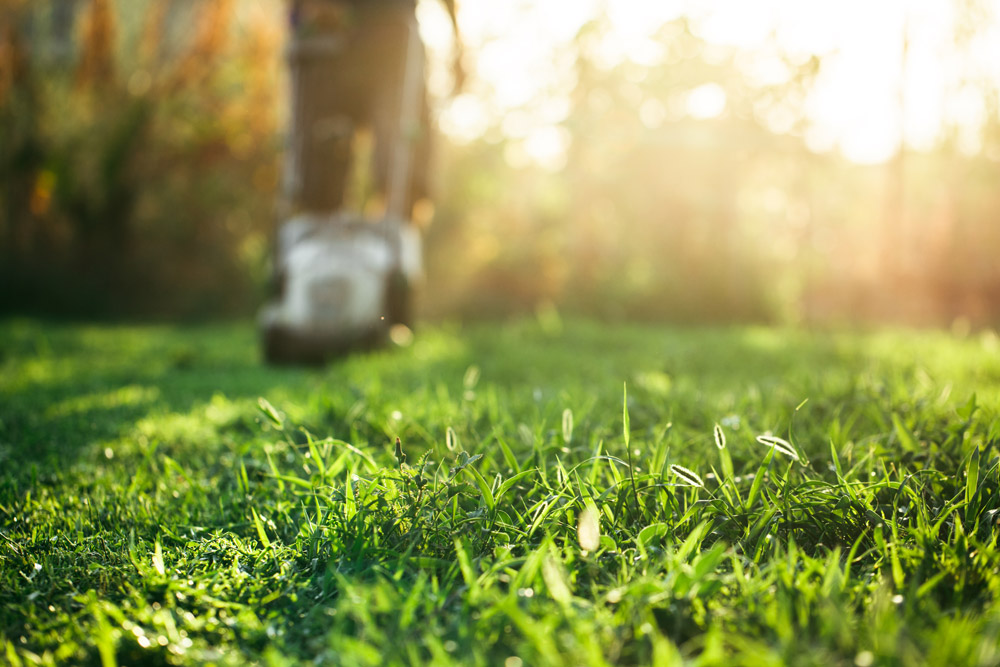Hypnotic and Happy
It is a well-documented fact that lawn care programs, whether initiated by a professional crew like Lawngevity or simply picked up as part of the weekend chores by a member of the household, are a great way to destress and feel happy. In fact, many mental health counselors will prescribe gardening to their patients to help them reset and get back in the cradle of a positive emotional space.
One of the best ways to engender this sort of zen-like peace is mowing the lawn. The smell of the grass, the hypnotic hum of the motor, the lines on the lawn as the grass goes from long to short; mowing is like a gift that you can give yourself once a week to get in touch with your thoughts while also beautifying your property.
Mowing Myths
In spite of all the good that mowing does, both for your lawn care as well as your mental peace, there is still a right way and a wrong way to go about it. Over time, many myths have popped up about what type of mowing behavior is helpful for the grass or unhelpful for the grass, and so we wanted to collect a few of them here. If you’re interested in learning about other lawn car myths, you can see what else we’ve written on the subject, here.
Myth #1 — The blade just needs to be moving fast to cut the grass; it doesn’t need to be sharp.
This myth probably sprung up because so few people actually take the pains to sharpen their mower blade in the first place. The speed of the blade also makes sense, from the perspective that few things would be able to resist the force of a large object moving as quickly as a mowing blade.
In truth, the sharpness of the blade isn’t just to ensure that the grass is cut — it’s to ensure that the grass is hacked up. Sharp blades:
- Prevent a chopped up aesthetic to the lawn
- Keeps the grass from becoming weak
- Stops the spread of lawn-based diseases
- Promotes the quick, even healing of the grass
Making sure that your grass grows back more beautifully than ever is the headlining mission of Lawngevity’s lawn care programs. You can learn more about that here.
Myth #2 — You don’t need to worry about the height of the mower; all that matters is that the grass gets cut.
This myth is likely a product of how many young people make their allowance mowing the lawn who have no idea that you can adjust the height of the engine on the wheels. They know how to fill the gas tank, start the motor, and engage the drive assist, but the height of the mower itself (or the general length of the grass) is just a bit too nuanced for them.
Or, the individual pushing the mower simply doesn’t know that when it comes to the length of the lawn, there is a difference between “shorter than it was” and “too short.” Here are some reasons why cutting the grass right down to the soil is a bad idea:
- Cutting too much of the leaf limits how much photosynthesis can be done
- Less energy in the lawn means fewer nutrients
- The space once taken up by the grass is now free to allow weeds to grow
Typically, you want to allow your grass to grow to at least 1 – 2.5 inches in height, depending on whether it’s a warm or cold species.
Myth #3 — Bagging the cut grass not only looks better but keeps the lawn healthier, too.
This one is a bit of a cheat. Whether the yard looks better with the grass either bagged or left to mulch in clumps is entirely up to your tastes. But the truth of the matter is that a mulched lawn is a happier lawn. Here’s what mulching accomplishes:
- The clippings are full of nutrients like nitrogen, potassium, and phosphorus that can be reabsorbed into the soil.
- By not bagging the grass clippings, you save space in your trash dumpster for other types of waste.
- Leaving the clippings on the ground is ultimately easier on your back and legs instead of having to bend over and pick up heavy trash bags of cut grass.
For us at Lawngevity, Utah’s lawn care is our first priority. We are happy to help you in any way we can, from spraying for bugs to eradicating weeds. Call us today for a free quote.


